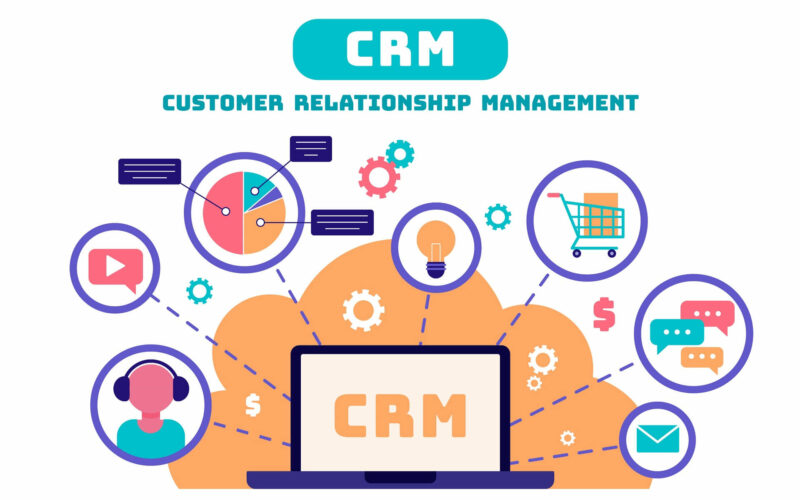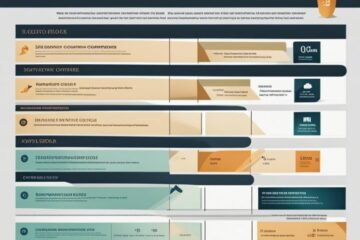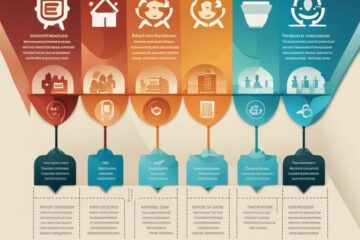Over the past few decades, Customer Relationship Management (CRM) software has revolutionized the way businesses interact with their customers. In today’s fast-paced digital world, having a robust CRM system in place is crucial for managing customer relationships effectively and driving business growth. But what exactly is CRM, and how can it benefit your organization?
From organizing customer data to tracking leads and managing sales pipelines, CRM software offers a wide range of features designed to streamline customer interactions and improve overall efficiency. With the right CRM solution, businesses can gain valuable insights into customer behavior, personalize marketing campaigns, and enhance customer satisfaction levels. However, navigating the world of CRM software can be overwhelming, with a myriad of options available in the market.
In this comprehensive guide, we will research into the intricacies of Customer Relationship Management software and provide you with all the information you need to make an informed decision for your business. Whether you are a small startup looking to build strong customer relationships or a large corporation aiming to improve customer retention, this guide will equip you with the knowledge to leverage CRM software effectively and drive success in your organization.
Key Takeaways:
- CRM software stands for Customer Relationship Management software, designed to help businesses manage interactions and relationships with both current and potential customers.
- CRM software helps improve customer service by organizing and automating processes, ultimately leading to better customer satisfaction and loyalty.
- Key features of CRM software include contact management, sales tracking, lead management, email integration, and reporting tools.
- CRM software streamlines communication within an organization, allowing different departments to access and share customer data, leading to a more unified customer experience.
- Implementing CRM software requires proper training for employees to ensure effective use and maximize its benefits for the business.
- Cloud-based CRM solutions offer scalability, flexibility, and easy access to data from any location with an internet connection, making it a popular choice for businesses of all sizes.
- Integrating CRM with other important tools such as marketing automation, customer support, and analytics can provide a more comprehensive view of customer interactions and insights for better decision-making.
The Evolution of CRM Software
Historical Context and Origins
Historical records show that the roots of Customer Relationship Management (CRM) date back to the 1970s when businesses began to realize the importance of maintaining a positive relationship with their customers. Initially, CRM was a manual process that involved cumbersome paper-based systems and Rolodexes to keep track of customer interactions. This primitive form of CRM was limited in scope and efficiency, leading to the need for more advanced solutions.
With the advent of technology in the 1990s, the concept of CRM software began to take shape. Companies started developing databases to store customer information and track interactions. These early CRM systems were basic and used primarily for managing contacts and sales leads. However, they laid the foundation for the sophisticated CRM software we have today.
As businesses realized the potential of CRM in improving customer relationships and driving sales, the demand for more advanced CRM solutions grew. This led to the development of cloud-based CRM software that revolutionized the way companies interacted with their customers. Today, CRM software is an crucial tool for businesses of all sizes, helping them streamline processes, increase productivity, and boost customer satisfaction.
From Rolodex to Cloud: The Technological Advancements
Now, CRM software has evolved significantly from the days of Rolodexes and manual record-keeping. Companies now have access to powerful CRM systems that offer a wide range of features, including customer segmentation, analytics, marketing automation, and more. The shift to cloud-based CRM has further transformed the way businesses manage customer relationships, allowing for real-time access to data and improved collaboration among teams.
Advancements
Advancements in CRM technology have made it easier for companies to personalize customer interactions, tailor marketing campaigns, and provide better customer service. With the use of AI and machine learning, CRM software can now analyze vast amounts of data to provide valuable insights and predictions. This level of sophistication has enabled businesses to stay ahead of the competition and deliver exceptional customer experiences.
Types of CRM Software
To manage customer relationships effectively, businesses can utilize various types of CRM software. Each type serves a specific purpose to cater to different aspects of the customer relationship management process. The main types of CRM software are Operational CRM, Analytical CRM, and Collaborative CRM.
- Operational CRM Solutions
- Analytical CRM Solutions
- Collaborative CRM Solutions
Operational CRM Solutions
With Operational CRM solutions, businesses focus on streamlining and automating customer-facing processes such as sales automation, marketing automation, and service automation. This type of CRM software is designed to improve customer interactions, enhance efficiency, and increase productivity throughout the customer lifecycle.
Operational CRM solutions typically include features like contact management, lead management, and workflow automation to help businesses track and manage customer data effectively. By centralizing customer information, organizations can provide personalized service and targeted marketing campaigns to enhance customer satisfaction and loyalty.
Moreover, Operational CRM solutions enable real-time access to customer data, allowing sales and marketing teams to make data-driven decisions and optimize their strategies for better results.
Analytical CRM Solutions
Software designed for Analytical CRM Solutions focuses on analyzing customer data to gain valuable insights into customer behavior, preferences, and trends. By leveraging advanced analytics tools, businesses can segment customers, predict future behavior, and identify opportunities for cross-selling or upselling.
Plus, Analytical CRM Solutions help businesses track key performance indicators (KPIs) and measure the effectiveness of marketing campaigns, sales activities, and customer service efforts. By analyzing data from various sources, organizations can make informed decisions to improve customer satisfaction and drive profitability.
Furthermore, businesses can use Analytical CRM Solutions to create customized reports, dashboards, and visualizations that provide a comprehensive view of customer interactions and trends for strategic planning and decision-making.
Collaborative CRM Solutions
Types of Collaborative CRM Solutions focus on facilitating communication and collaboration among departments to ensure a seamless and unified customer experience. By sharing customer information and insights across different teams, organizations can work together to resolve customer issues, deliver personalized recommendations, and coordinate sales and marketing efforts effectively.
This collaborative approach fosters a customer-centric culture within the organization, leading to improved customer satisfaction and loyalty. By breaking down silos and promoting cross-departmental collaboration, businesses can enhance the overall customer experience and build long-lasting relationships with their customers.
Furthermore, Collaborative CRM Solutions often include tools for social media integration, customer feedback management, and customer service portals to facilitate real-time communication and engagement with customers across multiple channels.
Thou, understanding the different types of CRM software available can help businesses choose the right solution that aligns with their specific goals and objectives.
Core Features of CRM Software
Contact Management
Unlike traditional methods of managing customer information, CRM software offers a centralized platform for storing and organizing contact details. Assuming that your business interacts with a large number of customers, keeping track of individual preferences, interactions, and purchasing history can be a daunting task. CRM systems streamline this process by providing a comprehensive database that can be easily accessed and updated by all team members. This ensures that everyone is on the same page and can deliver personalized experiences to customers based on their past interactions with the company.
Task and Workflow Automation
There’s no denying the importance of efficiency in today’s fast-paced business environment. CRM software goes beyond basic contact management by offering task and workflow automation capabilities. By automating repetitive tasks such as sending follow-up emails, scheduling appointments, and updating records, businesses can save time and reduce the risk of human error. A CRM system can also streamline workflow processes by assigning tasks to team members, setting reminders, and tracking progress, ensuring that nothing falls through the cracks.
A well-designed CRM system can even predict the next steps in a workflow based on predefined criteria, allowing teams to focus on high-priority tasks and strategic initiatives. This level of automation not only improves productivity but also enhances the overall customer experience by ensuring timely and consistent communication.
Lead and Sales Pipeline Management
For businesses focused on growth and revenue generation, lead and sales pipeline management are critical components of a CRM system. Core functionalities include lead tracking, qualification, and nurturing, as well as monitoring sales opportunities through different stages of the pipeline. By providing a clear view of where each lead stands in the sales process, businesses can prioritize their efforts and focus on closing deals.
Plus, CRM software enables sales teams to forecast revenue, identify bottlenecks in the sales process, and optimize their strategies for maximizing conversions. With real-time insights into key performance metrics, businesses can make data-driven decisions that drive growth and profitability.
Reporting and Analytics
Even the most robust CRM system is incomplete without robust reporting and analytics capabilities. CRM software allows businesses to track and measure the performance of their sales, marketing, and customer service efforts. By generating customizable reports and dashboards, users can gain valuable insights into customer behavior, campaign effectiveness, and overall business performance.
Data-driven decision-making is crucial for staying competitive in today’s market, and CRM software empowers businesses to leverage customer data for strategic planning and optimization. With the ability to analyze trends, identify opportunities, and forecast outcomes, organizations can continuously improve their processes and drive sustainable growth.
Third-Party Integration Capabilities
Automation of routine tasks is crucial, but the ability to connect CRM software with other tools and applications is equally valuable. While CRM systems offer a wide range of features out of the box, third-party integration capabilities enhance their functionality by allowing seamless data flow between different platforms. By integrating with email marketing tools, social media platforms, accounting software, and more, businesses can centralize their operations and achieve a holistic view of customer interactions.
While CRM software serves as the hub for customer information and interactions, integrating with external systems ensures that data is synced across all touchpoints. This not only improves operational efficiency but also enables personalized and consistent communication with customers across various channels.
Choosing the Right CRM Software for Your Business
Identifying Your Business Needs
Not all CRM software is created equal, and finding the right fit for your business requires a thorough understanding of your unique needs. If you are a small business looking to track customer interactions and manage sales leads, a basic CRM system with contact management functionality may suffice. On the other hand, if you are a large enterprise dealing with complex sales cycles and multiple touchpoints, you may require a robust CRM solution with advanced reporting and analytics capabilities.
Factors to Consider When Selecting CRM Software include the scalability of the software, integration capabilities with existing systems, customization options, user-friendliness, and the level of customer support provided by the vendor. It’s crucial to evaluate how well the CRM software aligns with your business processes and goals before making a decision. Perceiving these factors will help you choose a CRM solution that best meets your needs.
On-Premise vs. Cloud-Based CRM Solutions
Clearly defining whether you need an on-premise or cloud-based CRM solution is imperative in selecting the right software for your business. If your business requires complete control over data security and customization options, an on-premise CRM solution may be the best choice. On the other hand, if you prefer the flexibility of accessing your CRM system remotely and the scalability offered by cloud-based solutions, then a cloud-based CRM may be more suitable.
Factors to consider when deciding between on-premise and cloud-based CRM solutions include cost, security, scalability, maintenance requirements, and accessibility. Both options have their advantages and drawbacks, so it’s imperative to weigh these factors carefully to make an informed decision. Perceiving the differences between on-premise and cloud-based CRM solutions will help you determine which option aligns best with your business needs.
Tips for Successful CRM Implementation
Many businesses invest in CRM software to improve their customer relationships and streamline their processes. However, the success of a CRM implementation depends on several key factors. Here are some tips to ensure a successful CRM implementation:
Setting Clear Objectives
Any successful CRM implementation starts with setting clear objectives. Identify what you want to achieve with your CRM system, whether it’s improving customer service, increasing sales, or enhancing marketing efforts. Clearly defined objectives will guide the implementation process and help you measure the success of your CRM strategy.
Define key performance indicators (KPIs) that align with your objectives and track them throughout the implementation process. This will help you stay on track and make adjustments as needed to ensure you are meeting your goals.
After setting clear objectives, communicate them to your team members and ensure everyone is aligned and committed to achieving them. This will create a sense of purpose and direction, making it easier to implement the CRM system effectively.
Securing Executive Buy-In and User Adoption
Some of the most critical factors for successful CRM implementation are securing executive buy-in and achieving high user adoption rates. Without support from top management, it can be challenging to allocate resources and drive the necessary changes within the organization.
Engage executives early in the process and involve them in decision-making to ensure their buy-in. Additionally, provide adequate training and support to end-users to encourage adoption. User input is imperative for a successful CRM implementation, so make sure to address any concerns and provide ongoing assistance.
It is important to emphasize the benefits of the CRM system to both executives and users. Highlight how it will improve efficiency, enhance customer relationships, and ultimately drive business growth. By gaining buy-in and promoting user adoption, you can maximize the ROI of your CRM investment.
Data Migration Strategies
Tips for successful data migration strategies include conducting a thorough data audit to identify what information needs to be transferred to the new CRM system. Develop a data migration plan that outlines the process, roles and responsibilities, and timeline for migration. Ensure data accuracy by cleaning and deduplicating information before transferring it.
Implementation of data migration strategies also involves testing the process to identify and resolve any issues before going live with the new CRM system. Consider working with experienced data migration specialists to ensure a smooth and successful transition of your data to the new platform.
Understanding the importance of data migration and implementing best practices will help you avoid potential pitfalls and ensure a successful CRM implementation. By prioritizing data accuracy and completeness, you can leverage your CRM system to its full potential and drive business success.
Training and Support for Teams
Understanding the importance of comprehensive training and ongoing support for teams is crucial for a successful CRM implementation. Provide customized training programs based on roles and responsibilities to ensure users are proficient in using the CRM system effectively.
Data integration refers to the process of combining data from different sources and providing a unified view for analysis and decision-making. Proper data integration is vital for ensuring data accuracy and consistency within the CRM system, ultimately leading to more informed business decisions.
Support teams with a dedicated CRM administrator who can address technical issues, provide guidance, and implement system updates as needed. By offering continuous training and support, you can empower your teams to make the most of the CRM system and drive positive results for your business.
Step-by-Step Guide to Using CRM Software
The Initial Setup and Customization of CRM software is crucial for maximizing its efficiency. When setting up your CRM system, it is important to tailor it to your specific business needs. This includes customizing fields, layouts, and automation rules to ensure that the software aligns with your organization’s processes. Take the time to train your team on how to use the CRM effectively and encourage them to provide feedback for any necessary adjustments.
Once again, Integrating CRM with Existing Systems is vital for a seamless flow of information across all departments. CRM software should be integrated with other tools such as email marketing platforms, social media channels, and accounting software to provide a comprehensive view of customer interactions. This integration allows for a centralized database where all customer data is stored, making it easily accessible to all authorized employees. In addition, syncing CRM data with other systems helps in automating repetitive tasks and streamlining processes.
Software integrations are imperative for enhancing the functionality of CRM systems. By connecting CRM software with other tools such as ERP systems or project management software, businesses can achieve a more holistic view of their operations. This integration allows for the automation of data syncing, reducing the chances of manual errors and ensuring that all systems are up to date in real time.
Integrating CRM with Existing Systems
The integration of CRM software with existing systems is a complex process that requires careful planning and execution. Businesses must ensure that the data being transferred between systems is accurate and secure. Additionally, regular maintenance and updates are necessary to keep all integrations running smoothly. It is advisable to work closely with IT professionals or CRM providers to ensure a successful integration process.
Assuming proper integration, Adding Contacts and Managing Data is the next step in utilizing CRM software effectively. Start by inputting all relevant customer information into the system, including names, contact details, and any interactions they have had with your business. Organize this data into categories or segments to facilitate targeted marketing campaigns and personalized communication. Regularly update and clean your database to ensure accuracy and relevancy of information.
Guide your team on how to add new contacts to the CRM system and manage existing data. Encourage them to input detailed notes about customer interactions to provide a comprehensive view of each relationship. Utilize tags and labels to categorize contacts based on specific criteria such as lead status, industry, or region. By keeping the database organized and up to date, businesses can improve their customer engagement and retention strategies.
Adding Contacts and Managing Data
Understanding how to effectively add contacts and manage data in CRM software is imperative for building strong customer relationships. Businesses must have a systematic approach to inputting and updating customer information to ensure that all data is accurate and relevant. Regularly reviewing and cleaning the database helps in maintaining the quality of data and enables businesses to make informed decisions based on up-to-date information.
As far as Automating Tasks and Establishing Workflows in CRM software, businesses can save time and resources by automating repetitive tasks such as email responses, lead scoring, and follow-up reminders. Establishing workflows within the CRM system streamlines processes and ensures that no lead or customer interaction falls through the cracks. Utilize automation tools to set triggers and actions that guide the flow of tasks based on predefined rules and criteria.
Initial setup plays a crucial role in determining the effectiveness of automation in CRM software. Businesses must define clear workflows and automation rules that align with their sales and marketing processes. Regularly review and optimize automation settings to ensure that the system is functioning efficiently. By automating repetitive tasks and establishing clear workflows, businesses can improve productivity and focus on more strategic initiatives to drive growth.
Automating Tasks and Establishing Workflows
Tasks like email responses, lead scoring, and follow-up reminders can be automated within CRM software to streamline processes and improve efficiency. By establishing workflows, businesses can ensure that tasks are completed in a timely manner and that all customer interactions are logged and tracked. Automation tools help in reducing manual errors and freeing up valuable time for employees to focus on building relationships and driving revenue.
While Monitoring Performance and Adjusting Strategies, businesses can use CRM software to track key performance indicators (KPIs) such as conversion rates, customer retention, and sales forecasts. Monitoring these metrics allows businesses to identify areas of improvement and adjust their strategies accordingly. By analyzing data and trends within CRM software, businesses can make informed decisions that drive growth and enhance customer satisfaction.
Systems integration plays a crucial role in enabling businesses to monitor performance effectively. By consolidating all customer data in one central database, businesses can gain a comprehensive view of their operations and customer interactions. Utilize reporting and analytics tools within CRM software to generate insights and trends that inform strategic decisions. Regularly review performance metrics and adjust strategies to align with business goals and objectives.
Maximizing the Benefits of CRM Software
Enhancing Customer Engagement and Experience
Your customers are the lifeblood of your business, and their engagement and experience should be a top priority. CRM software can help you enhance customer engagement by providing a centralized platform to store all customer interactions, preferences, and purchase history. This allows you to tailor your marketing efforts and communication to better meet their needs and expectations. By understanding your customers better, you can improve their overall experience with your brand, leading to increased loyalty and satisfaction.
Enhancing customer experience is vital in today’s competitive business landscape. CRM software offers tools to personalize customer interactions, automate responses, and provide timely support. This level of personalized service can set your business apart from competitors and create a positive perception of your brand. Additionally, CRM software enables you to track customer feedback and sentiment, allowing you to address issues promptly and proactively improve the overall customer experience.
Enhancing customer engagement and experience through CRM software is not just about improving individual interactions – it’s about building lasting relationships with your customers. By leveraging the data and insights provided by CRM software, you can anticipate customer needs, identify trends, and tailor your offerings to better align with their preferences. This proactive approach can help you foster long-term loyalty and advocacy among your customer base.
Streamlining Sales Processes
On top of enhancing customer engagement, CRM software plays a crucial role in streamlining sales processes. It provides a centralized platform for managing leads, tracking opportunities, and monitoring sales performance. By automating routine tasks such as data entry and follow-up reminders, sales teams can focus their time and energy on closing deals and building relationships. This efficiency not only speeds up the sales cycle but also improves overall productivity.
Streamlining sales processes through CRM software can also enhance collaboration between sales and marketing teams. By sharing real-time data and insights, both teams can align their efforts to target the right leads with the most relevant messaging. This integration leads to more effective campaigns, better-qualified leads, and ultimately, higher conversion rates. The visibility provided by CRM software also enables sales managers to track individual and team performance, identify bottlenecks, and make data-driven decisions to optimize sales strategies.
Streamlining sales processes is not just about making the sales team’s job easier – it’s about maximizing revenue and growth opportunities for the business as a whole. CRM software, as a part of Business Intelligence solutions, eliminates manual processes, reduces human error, and provides a holistic view of the sales pipeline. This level of insight allows you to forecast sales more accurately, identify upsell and cross-sell opportunities, and ultimately drive revenue growth.
Leveraging Analytics for Informed Decision Making
Leveraging analytics through CRM software is important for making informed decisions that drive business success. CRM software collects and analyzes data on customer interactions, sales performance, and marketing campaigns to provide valuable insights into your business operations. By leveraging these insights, you can identify trends, opportunities, and areas for improvement, enabling you to make strategic decisions that optimize performance and drive growth.
For instance, CRM analytics can help you identify high-value customers, predict future sales trends, and personalize marketing campaigns for better engagement. By segmenting customers based on their behavior and preferences, you can target them with tailored offers and promotions that are more likely to convert. This targeted approach not only improves ROI on marketing efforts but also enhances the overall customer experience.
Cultivating Long-Term Customer Relationships
LongTerm success in business depends on more than just acquiring new customers – it’s about nurturing and retaining existing ones. CRM software helps cultivate long-term customer relationships by providing a comprehensive view of each customer’s history, preferences, and interactions with your business. This wealth of data enables you to personalize your communication, anticipate needs, and proactively address issues, fostering loyalty and long-lasting relationships.
Experience shows that customers who feel valued and understood are more likely to remain loyal to a brand, make repeat purchases, and recommend it to others. By leveraging CRM software to track customer interactions, gather feedback, and tailor your offerings, you can create personalized experiences that resonate with your customers on a deeper level. This personalized approach not only strengthens relationships but also boosts customer satisfaction and loyalty.
Experience has shown that businesses that prioritize long-term customer relationships over short-term gains are more likely to thrive in the long run. By investing in CRM software to understand your customers better, anticipate their needs, and provide personalized experiences, you can create a loyal customer base that acts as brand advocates and drives sustainable growth for your business.
Pros and Cons of CRM Software
Advantages: Implementing CRM software offers businesses a myriad of benefits. Firstly, it allows organizations to centralize customer data, making it easily accessible to all departments. This enables a more personalized approach to customer interactions, improving overall customer satisfaction and loyalty. Secondly, CRM software automates tasks such as data entry and customer communication, freeing up valuable time for employees to focus on more strategic activities. Lastly, CRM systems provide detailed insights through reporting and analytics, helping businesses make data-driven decisions that can lead to increased revenue and growth.
Moreover, CRM software facilitates a more collaborative work environment by allowing teams to share information and coordinate efforts seamlessly. This promotes better alignment across departments and ensures everyone is on the same page when it comes to customer interactions. Additionally, CRM systems can streamline marketing campaigns by segmenting customers based on their preferences and behavior, leading to more targeted and effective communication strategies. Lastly, CRM software can enhance customer service by providing a 360-degree view of each customer, enabling representatives to offer personalized support and improve overall satisfaction levels.
Furthermore, CRM software can enhance sales performance by providing valuable insights into customer behavior and preferences. By tracking interactions and sales history, sales teams can prioritize leads, forecast trends, and identify cross-selling opportunities. This can lead to more efficient sales processes and ultimately drive revenue growth. Additionally, CRM systems can improve customer retention rates by identifying at-risk customers and implementing targeted retention strategies. By proactively addressing customer needs, businesses can reduce churn rates and increase customer lifetime value.Potential Challenges and Limitations
Potential: While CRM software offers numerous advantages, there are also potential challenges that organizations may face when implementing and using these systems. One common challenge is the resistance to change among employees who may be accustomed to traditional methods of managing customer relationships. Overcoming this resistance requires effective training and communication to ensure all users understand the benefits of CRM and are comfortable using the new system.
Limitations: Another limitation of CRM software is the potential for data inaccuracies and inconsistencies if not properly maintained. Without regular updates and maintenance, the integrity of the data stored in the CRM system can be compromised, leading to erroneous insights and poor decision-making. It is crucial for organizations to establish data quality protocols and ensure that all employees adhere to best practices for data entry and management to mitigate this risk.Advanced CRM Topics and Future Trends
- Mobile CRM and Convenience on the Go
| Feature | Description |
| Real-Time Updates | Access to updated customer information anytime, anywhere. |
| Geo-Location Tracking | Helps sales teams to optimize routes and plan client visits efficiently. |
The Role of Artificial Intelligence (AI) in CRM
Assuming you’re familiar with the basics of CRM, you may be wondering about the role of Artificial Intelligence in this field. There’s no denying that AI is transforming the way businesses interact with their customers. By utilizing AI-powered tools, organizations can analyze vast amounts of data to gain valuable insights into customer behavior, preferences, and trends. This, in turn, enables them to create personalized experiences, predict future needs, and make data-driven decisions.
Role of AI in CRM is becoming increasingly crucial as businesses strive to deliver improved customer experiences and drive growth. By automating routine tasks, such as data entry and lead scoring, AI frees up valuable time for sales and marketing teams to focus on building relationships and closing deals. Additionally, AI-powered chatbots are revolutionizing customer service by providing instant support and personalized recommendations round the clock.
Social CRM and the Impact of Social Media
Topics around Social CRM and the Impact of Social Media are gaining traction in the CRM landscape. With the proliferation of social media platforms, customers are engaging with brands in new ways and expecting real-time responses. Social CRM integrates social media data into CRM systems, allowing businesses to track customer interactions, gather feedback, and tailor marketing strategies accordingly. Understanding these dynamics is imperative for companies looking to stay competitive in the digital age.
Understanding the importance of social media in CRM is key to building lasting customer relationships and driving brand loyalty. By monitoring social conversations and sentiment analysis, businesses can proactively address customer concerns, identify opportunities for product improvement, and engage with influencers to amplify their reach. In today’s interconnected world, social CRM is no longer a nice-to-have but a must-have for businesses aiming to stand out in the market.
Predictive Analytics and the Future of CRM
Analytics plays an integral role in shaping the future of CRM, with Predictive Analytics leading the way. By leveraging advanced algorithms and machine learning techniques, businesses can forecast customer behavior, anticipate trends, and tailor offerings to meet individual needs. The ability to predict customer actions enables organizations to implement targeted marketing campaigns, enhance sales forecasting accuracy, and optimize customer retention strategies.
The evolution of Predictive Analytics in CRM represents a significant shift towards a more proactive and personalized approach to customer engagement. By harnessing the power of data, businesses can gain a competitive edge in a crowded marketplace, increasing customer satisfaction and loyalty while driving revenue growth. As technology continues to advance, the integration of Predictive Analytics into CRM systems will become increasingly vital for businesses seeking to stay ahead of the curve.
Conclusion
Upon reflecting on the comprehensive guide to Customer Relationship Management Software, it is evident that CRM is a powerful tool that helps businesses build and maintain strong relationships with their customers. From organizing customer data to automating marketing campaigns, CRM software offers a wide range of features to enhance customer interactions and drive business growth.
By implementing CRM software, companies can streamline their processes, improve customer satisfaction, and increase sales opportunities. It also provides valuable insights into customer behavior and preferences, allowing businesses to tailor their products and services to meet the needs of their target audience. Ultimately, CRM software plays a crucial role in fostering long-lasting and profitable relationships with customers.
As technology continues to evolve, the importance of CRM software in today’s business landscape cannot be overstated. It is crucial for companies to leverage CRM tools to stay competitive, optimize their operations, and deliver exceptional customer experiences. With the right CRM solution in place, businesses can truly take their customer relationships to the next level and achieve sustainable success in the dynamic market environment.
FAQ
Q: What is CRM?
A: Customer Relationship Management (CRM) is a technology that helps businesses manage interactions with current and potential customers. It involves using data analysis about customers’ history with a company to improve business relationships, specifically focusing on customer retention and ultimately driving sales growth.
Q: Why is CRM important for businesses?
A: CRM is crucial for businesses as it helps them build and maintain customer relationships effectively. By organizing, automating, and synchronizing sales, marketing, customer service, and technical support, CRM enables businesses to streamline processes and increase profitability.
Q: What are the key features of CRM software?
A: Some key features of CRM software include contact management, lead management, sales forecasting, email integration, customer service tools, analytics and reporting, and integration with other business tools such as marketing automation and social media management.
Q: How can CRM benefit sales teams?
A: CRM software provides sales teams with valuable insights into customer behavior and preferences, helping them understand customer needs better. It also automates repetitive sales tasks, streamlines workflows, and improves communication within the team, leading to increased efficiency and higher sales conversions.
Q: What are the different types of CRM systems available?
A: There are primarily three types of CRM systems: Operational CRM, which focuses on automation and improvement of customer-facing business processes; Analytical CRM, which analyzes customer data for strategic business decisions; and Collaborative CRM, which facilitates interactions with customers and other departments.
Q: How can businesses choose the right CRM software?
A: When choosing CRM software, businesses should consider factors such as their specific needs and goals, budget constraints, scalability, ease of integration with existing systems, user-friendliness, and customer support services offered by the CRM vendor.
Q: What are some best practices for implementing CRM software?
A: To ensure a successful CRM implementation, businesses should involve all relevant departments in the planning process, provide comprehensive training to employees, regularly update and maintain data quality, set clear goals for CRM usage, and continuously monitor and evaluate the system’s performance for ongoing improvements.









